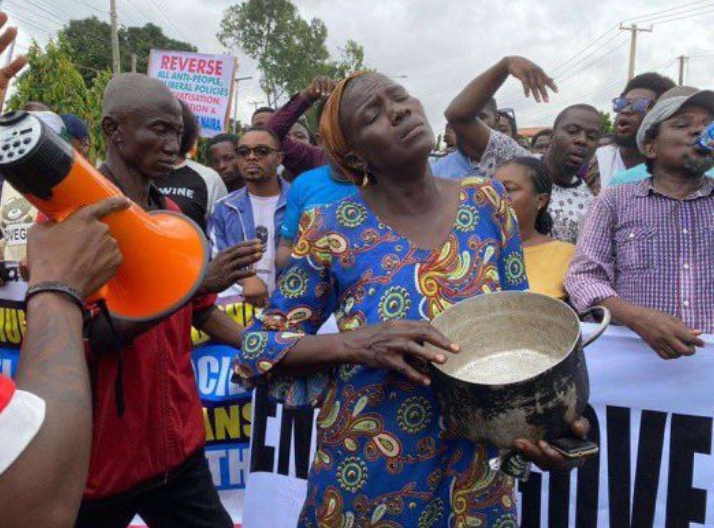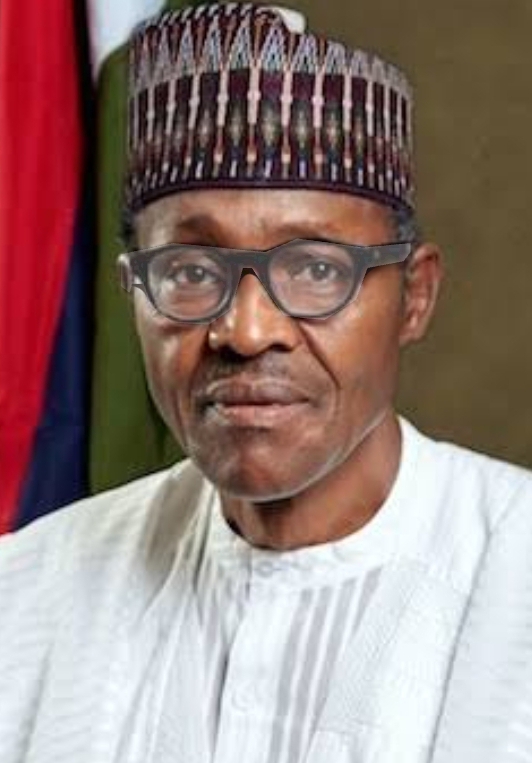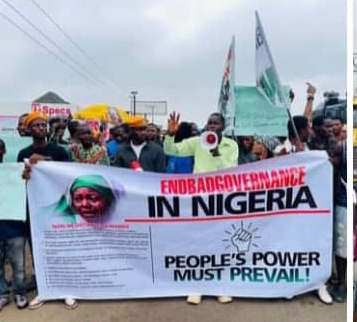In his seminal work, The Wealth of Nations, Adam Smith described the wealth of a nation as “the annual produce of the land and labour of the society”. The annual produce of the land connotes both mineral and natural resources which provide essential raw materials and commodities that drive economic activities, and the labour of the society connotes the taxes and the import/export duties generated by the nation. Essentially, the combination of these elements sustains and enhances the wealth of a nation.

The wealth of a nation is its lifeblood, meant to secure food supplies, fuel industrial growth, build schools for children’s education, run hospitals for health care, and build infrastructure for collective progress. It is the very essence that should shape the present and future of a Nation.
Tragically, in Nigeria, this precious wealth has been plundered and frittered by past/present Political officeholders, past/present Military/Paramilitary officers, and past/present Public/Civil servants who had been major dramatis personae in the affairs of the country since 1960. This relentless theft has spanned generations, with some culprits now retired or deceased, passing their ill-gotten gains to their children. The dreams and future of a Nigerian have been stolen, leaving a legacy of loss and betrayal.
Read Also: The Devastating Impact of Rampant Corruption on Nigerian
Sadly, the wealth meant for the Nigerian people now lies dormant in European banks, some are used to acquire properties in foreign lands/upscale Nigerian cities, and some are hidden treasures in forgotten secret locations. Much of it remains as unclaimed dividends in multinational companies and Nigerian banks, with families unaware of their deceased relatives’ hidden assets. This stolen wealth, intended to uplift the nation, are used to run the economy of foreign Nations, a stark reminder of the betrayal and loss suffered by the people.

The current hunger crisis, which has sparked protests across the nation, is the result of accumulated corruption and bad governance over the years. Successive Military coups in Nigeria often justified their actions by the corruption of ousted governments. The immediate past government under Buhari worsened the situation. Due to his illness, he left the government on autopilot, allowing his associates to loot the nation dry, sell crude oil upfront for years ahead, print and steal unlimited and unaccountable amounts of currency.
Former President Buhari also give his kinsmen the unfettered freedom to scare farmers away from their farmland across the Nation which now exacerbate food insecurity. The effects of past mismanagement became evident as the new government took office. Despite efforts to implement necessary but tough policies to address years of misrule, the new administration now faces blame for the resulting hunger and hardship.
Read also: Nigeria’s Masses Struggle with Inequality and Exclusion from the Nation’s Commonwealth.
Nigerians often overlook the past actions of corrupt politicians and government officials once they leave office. The current protests need to include scrutiny of everyone who has previously held office, whether they are politicians, military personnel, contractors, or civil servants, living or deceased. These individuals can be identified by their properties, extravagant lifestyles, and assets abroad. Nigerians living abroad should help by investigating and identifying properties owned by former Nigerian officeholders.
While holding all these individuals accountable may not be entirely practicable, it is essential to support the new government in tackling the accumulated issues. The Tinubu administration should be allowed to continue its efforts in finding solutions.

The path to Nigeria’s recovery lies in addressing the root causes of its problems. A huge percentage of the wealth stolen over decades must be recovered and redirected towards development. The President should make this effort transparent in a clear departure from the ongoing efforts that are in secrecy.
Agriculture, as the backbone of food security and economic stability, should be the primary focus of its economic development. As a matter of urgency, the government must avoid superficial measures and instead focus on a transparent economic recovery plan centred on the agricultural revolution. Given the nation’s circumstances, food production should largely be a State responsibility. The government should take charge of food production with clear targets for agricultural output to achieve food security.
Read Also: Transform Nigerian Local Councils into Agric Development Centres to Enhance Productivity
By doing so, Nigeria can build a new foundation for a prosperous future and ensure that the Wealth of the Nation benefits all Nigerians. Agriculture is the antidote to the present hunger crisis. It offers a sustainable solution that can provide immediate relief and long-term stability. A well-planned agricultural policy can create jobs, boost food production, and reduce dependence on imports. It can also mitigate the effects of bad governance by providing a steady source of income and sustenance for the population.
This is not the time for blame games or protests that divert attention from the real issues. It is time for collective action to rebuild the nation. We must hold those responsible for past misdeeds accountable while supporting the current government in its effort to rectify the situation.

This approach requires clear targets, transparency, and the involvement of all stakeholders. State governments must take the lead in implementing agricultural policies that are tailored to their unique needs and resources.
Wealth of a nation is not just its money or resources. It is the collective effort of its people to build a better future. Nigeria’s wealth has been mismanaged and stolen, but it can be recovered and used for the benefit of all. By supporting the Tinubu administration and focusing on agriculture, we can turn the tide and create a prosperous future for Nigeria.
In sum, the problems Nigeria faces today are the result of years of accumulated mismanagement and corruption. The solution lies in supporting the current government’s efforts to address these issues, particularly through a focus on agriculture. By doing so, we can ensure food security, create jobs, and build a foundation for long-term economic stability. This requires collective action and the support of all Nigerians. Let us come together to rebuild our nation and secure a prosperous future for all.
Born in Ekiti State, Nigeria, Idowu Faleye is a Policy Analyst with an academic background in Public Administration. He serves as the lead Analyst at EphraimHill DC, and he’s the founder of EphraimHill DataBlog which delivers regular blog post writings on matters of public interest. He can be contacted via +2348132100608












































![The Trend of Insecurity in Nigeria. [Part 2]](https://ephraimhilldc.com/wp-content/uploads/2024/09/Computer-Monitoring-of-Remote-areas.png)


































